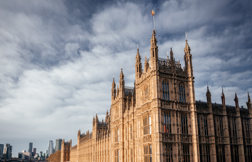One of the most talked about, U-turning Budgets of recent years was delivered by Chancellor Rachel Reeves on 26th November. It was preceded by an unintentional leak of the Office of Budget Responsibility’s Economic and Fiscal Forecast which somewhat stole the Chancellor’s thunder on the day.
Despite all the problems and difficulties she’s faced, Chancellor Reeves opened her Budget Speech by describing her Budget measures as ones to ‘rebuild the economy’. These measures were based on choices made earlier in the year to ‘cut debt and borrowing’ and the core foundations of achieving ‘investment, stability and reform’.
Key announcements
Here are the key announcements and how they may impact contractors:
- There will be an extension of the freeze in Income Tax and National Insurance Contribution thresholds for a further 3 years up to April 2031. This so-called ‘stealth tax’ means that as wages rise more people enter the tax net or have to pay tax at the higher rate.
- Tax on dividend income will increase by 2%. The ordinary rate will rise from 8.75% to 10.75%, and the upper rate from 33.75 to 35.75% from April 2026. The additional rate will remain unchanged at 39.35%. This will affect limited company contractors who take their reward mainly through dividends and consideration on the timing of taking those dividends will be important.
- Separate tax rates are being created for property income. From April 2027 landlords will be taxed at an ordinary rate of 22% with a higher property rate of 42% and an additional property rate of 47%. This is effectively a 2% tax rise on net rental income for an individual.
- Tax on savings income will also increase by 2% across all tax bands (basic, higher and additional rates). The Personal Savings Allowance is unchanged, and the new rates will apply from April 2027.
- For contractors and other EV and hybrid car users the Chancellor announced that a new mileage tax of 3p per mile for EV and 1.5p per mile for plug-in hybrids. This is subject to a consultation process and will come into effect in April 2026. Forecast tax contribution for a car user is around £240 per annum. Other vehicle types will not be included initially.
- From April 2029 salary sacrifice into a pension scheme, which historically saved both income tax and National Insurance Contributions (NIC) is to be capped at £2000 each year. Payments in excess of that will attract NIC employee and employer charges (but still qualify for tax relief). We will stay close to this and provide further commentary in due course.
- Aimed at shifting some of the taxation focus from income to assets the Chancellor is proposing to introduce a ‘mansion tax’ - the new ‘High Value Council Tax Surcharge’ or HVCT. Owners of residential properties worth £2m or more will face an annual charge of £2,500 from April 2028. This rises to £7,500 a year for properties worth more than £5m. The charge will be based on updated valuations and collected on the Exchequer’s part by local authorities.
- Contractors caught up in the interminable tangle of the Loan Charge can look forward to new settlement opportunities following the McCann review.
Other highlights
Some of the other noteworthy items in a heavyweight Budget include:
-
From April 2026 National Living Wage for workers aged over 21 to increase by 50p to £12.71 per hour, those aged 18-20 seeing an 85p rise to £10.85, and under-18s and apprentices getting 45p more to £8 an hour.
-
Sugar Tax is to be extended to include milk-based drinks.
-
Regional mayors are to be authorised to impose a tourist tax on overnight visitors.
-
Prescription charges and rail fares are to be frozen for 2026.
-
ISA reforms focussing on investment rather than just cash savings are to be introduced in April 2027.
-
Motability schemes are to stop making luxury cars available.
-
Increases in the Remote Gaming duty.
-
Further investment in HMRC’s modernisation of the tax system and debt collection resources.
-
Student Loan repayment thresholds are unchanged.
-
Abolition of voluntary Class 2 NICs by non-residents, which can provide a low-cost UK state pension or enhancement.
-
Fuel Duty 5p freeze extended until September 2026.
-
Triple Lock Pension guarantee of £575 increase for full-rate pensioners in April 2026.
-
£150 off annual domestic energy bills promised by the Chancellor from April next year.
-
Removal of the Two-child benefit cap from next April.
-
Changes to Capital Allowances with a reduction of writing down allowances but the introduction of a new first-year allowance of 40% main rate assets to encourage investment (sadly cars are not eligible!).
We’re still examining all the supporting documentation for further insights into challenges contractors may face. Please keep an eye on our blog for any further twists or turns on the detail of this remarkable Budget.









